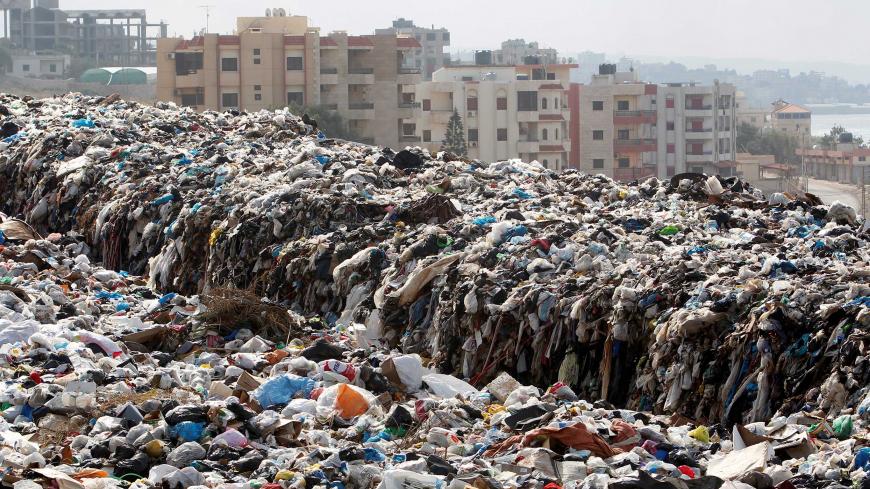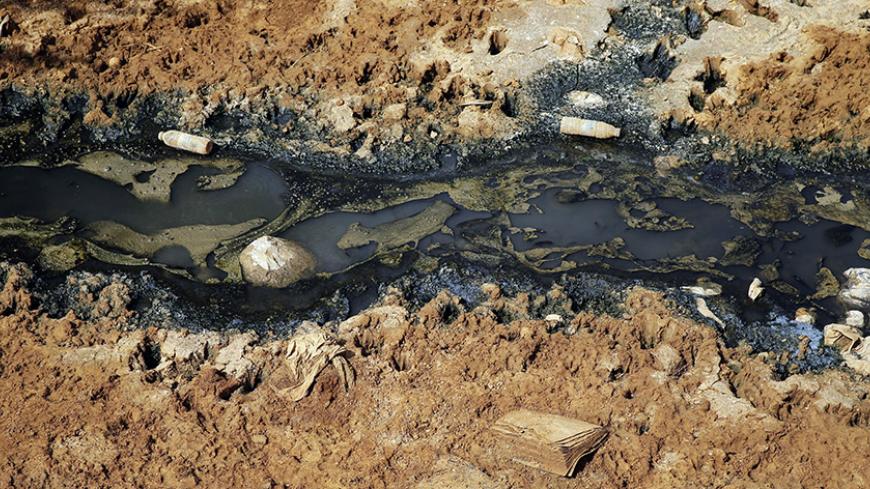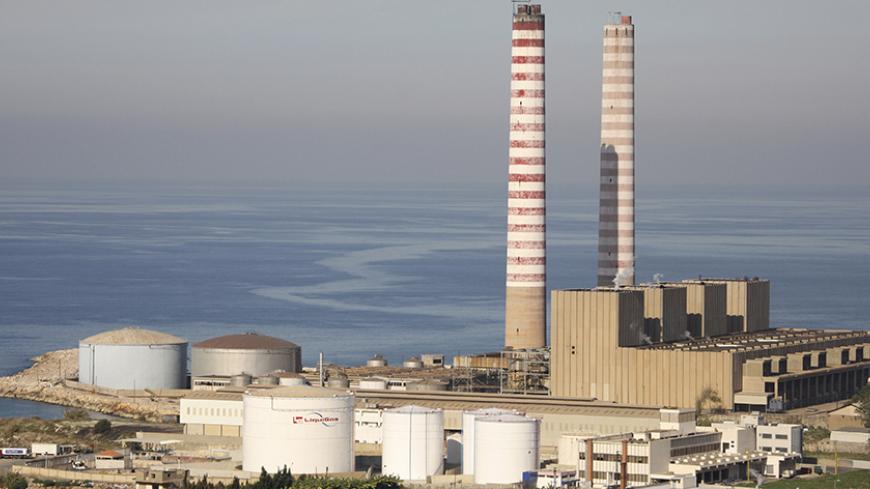Why Lebanon now leads the world in rising cancer rates
A recent study found that Lebanon has the world’s fastest-rising cases of cancer and cancer-related deaths. Ali Mokdad, co-author of the study, says tobacco is the main culprit.

BEIRUT — Crisis-stricken Lebanon is facing yet another challenge: a surge in cancer cases and cancer-related deaths, which researchers say is rising faster than anywhere else in the world.
A study conducted by the Lancet medical journal and published in September found that Lebanon recorded a staggering 162% surge of new cancer cases and an 80% rise in cancer-related deaths between 1990 and 2023. In 2023 alone, an estimated 233.5 new cancer cases were reported for every 100,000 people.
The study covered 47 types of cancer in 204 countries and territories, tracking cases and deaths between 1990 and 2023. According to the Lancet, there were 18.5 million new cancer cases and 10.4 million deaths worldwide in 2023. These numbers are projected to continue rising in the next 25 years, with an estimated 30.5 million new cases and more than 18.6 million cancer deaths expected by 2050.
According to the study, the main types of cancer that have risen worldwide are lung cancer, followed by leukemia and pancreatic and liver cancers. In Lebanon, data from the Global Cancer Observatory (International Agency for Research on Cancer) recorded 13,034 new cancer cases in 2022. Breast cancer was the most common, with 2,161 new diagnoses, followed by lung cancer (1,566 cases) and prostate cancer (1,083 cases).
Several factors are behind the alarming figures that Lebanon is witnessing. These include environmental pollution stemming from the widespread use of private, diesel-fueled generators, the unregulated use of chemicals and pesticides in agriculture and the open dumping and burning of garbage near residential areas.
However, the main driver behind this surge in Lebanon is smoking, from cigarettes to hookah, according to one of the authors of the study.
Ali Mokdad, a professor of health metrics sciences and chief strategy officer for population health at the University of Washington, co-authored the study and told Al-Monitor in an interview that the main culprit is smoking. “The main factor in Lebanon is tobacco, where more than 50% of adults smoke and almost everybody is exposed to secondhand smoking," Mokdad said.
While many of the factors contributing to the rise in cancer in Lebanon are found elsewhere in the world, no country has seen such a dramatic surge over the past three decades. “The only difference is tobacco; we smoke more than anybody else,” he warned.
Lebanon has one of the highest smoking rates in the world at 34.1% of its population of 5.8 million, according to 2024 World Health Organization data.
In August 2011, Lebanon’s parliament passed a law banning public smoking in enclosed public spaces, workplaces and means of public transportation, and prohibiting the advertisement of tobacco products.
But like many laws in the country, the ban has not been enforced, and today people still smoke inside cafes, restaurants, night clubs and even hospitals.
Mokdad blames the high rate of smoking for Lebanon's increasing cases of lung and pancreatic cancer. According to a 2023 study by country's Ministry of Health, more than 1,000 cases of lung cancer are diagnosed in Lebanon each year.
“Both of these two cancers are strongly associated with tobacco,” he noted, adding, “People who smoke have two to three times the risk of getting pancreatic cancer.”
The professor also highlighted an increase in cardiovascular disease in Lebanon, where heart problems have become very common.
Power crisis
The study also highlighted air pollution as one of the main causes behind the dramatic increase of cancer cases in the small Mediterranean country, especially in the capital city of Beirut.
One of the main causes of pollution is the widespread use of private generators due to a power crisis that has persisted since the civil war (1975–1990). Before the 2019 economic crisis, private generators supplied around 40% of the country’s household electricity needs.
The situation worsened after Lebanon’s 2019 financial collapse, which left the government unable to import fuel to run the state company, and the country was plunged into near-total darkness. Reliance on generators surged and they became the main source of power for much of the population. In a March 2023 report, Human Rights Watch estimated that there are 33,000 to 37,000 generators operating across Lebanon.
Toxic emissions from generator fumes increased by 300% in late 2021 compared to 2012, according to researchers at the American University of Beirut’s Nature Conservation Center.
Decades of war, crises leave impact
The chaos of the civil war saw massive dumping of chemical waste in Lebanon, according to Mokdad.
Various foreign companies paid off local militias to dispose of hazardous materials in the country, taking advantage of the lack of government oversight.
Thousands of barrels of toxic waste imported from European countries were buried or abandoned in quarries and landfills across Lebanon, including more than 2,000 tons of Italian industrial waste that is banned in Europe. Greenpeace has repeatedly warned that this waste poses serious risks to groundwater and public health.
Mokdad noted, “Lots of chemicals have been used during the civil war in Lebanon, especially during the war with Israel." He pointed to allegations that Israel used depleted uranium shells during the 2006 war with Hezbollah in Lebanon. Israel denied doing so, and UN experts have found no evidence of Israel using this type of munition then.
Lebanese parties repeated these accusations during the recent 13-month war with Israel, with the Syndicate of Chemists in Lebanon warning in October 2024 that the destruction caused by Israeli airstrikes in south Lebanon suggested that Israel may have used depleted uranium. Israel has repeatedly denied the use of depleted uranium.
Israel was also accused of dropping white phosphorus bombs in south Lebanon. In June 2024, HRW documented the use of white phosphorus munitions by Israeli forces in at least 17 municipalities across the south since the war began in October 2023.
The 1980 Convention on Certain Conventional Weapons bans the use of white phosphorus bombs, which are extremely toxic and cause severe burns, on civilian areas.
Another alarming issue is the 2020 Beirut port explosion, which released large amounts of toxic gases, including nitrogen oxides and ammonia, according to studies. The blast was caused by a fire at one of the port’s warehouses where nearly 3,000 tons of highly explosive ammonium nitrate had been improperly stored since 2014.
Mokdad explained that there is a lag period between exposure and the appearance of cancer. “Depending on the chemicals one is exposed to, it [can take] five years for cancer to appear. So a minor part of the rise in cancer cases could be attributed to the port explosion,” he said.
“We would expect more cancer cases and more lung problems in the future, especially in Beirut, among the people who were exposed to the explosion,” he warned.
Flailing health system
The situation appears to have worsened following the 2019 financial collapse in Lebanon, leading to shortages of medication and an increase in hospital costs that has hindered the early detection of cancer.
Mokdad explained that many types of cancer that used to kill people some 40 years ago can now be prevented if caught early and adequate medical care is provided.
“Lebanon has a very good quality of medical care. We have really good doctors in Lebanon trained outside and even in Lebanon and they do a good job,” he said. "But unfortunately, the economic crisis has prevented many people from seeking medical care and the chemotherapy that they need.”
Can trend be stopped?
While Lebanese health officials acknowledge that Lebanon has seen an increase in cancer cases, they believe the study’s findings may have been “exaggerated.”
“The data presented in the study is based on assumptions and pre-established models, not on available, realistic figures,” Lebanon’s Minister of Health Rakan Nasreddine said in a press statement released Sept. 30. “To date, there is no reliable data available on cancer deaths in Lebanon. The Lancet's projections may be exaggerated or entirely inaccurate.”
The National Cancer Registry of the Ministry of Health, which documents cancer cases in Lebanon, stopped publishing case numbers in 2016, when 11,392 cases were reported, a significant increase from the 7,406 cases reported in 2005, when the registry began.
However, Nasreddine noted that the findings should still prompt health officials in the country to take action.
Mokdad said that addressing the risk factors, including pollution, takes time. For instance, in order to reduce reliance on private generators, the electricity crisis must be resolved.
He believes the more pressing issue is to tackle what he described as the “tobacco pandemic” in the country. “Tobacco is something we can act on immediately through prevention and health education, by telling people that tobacco is killing their loved ones, especially their children who have been exposed to tobacco at a very young age.”







